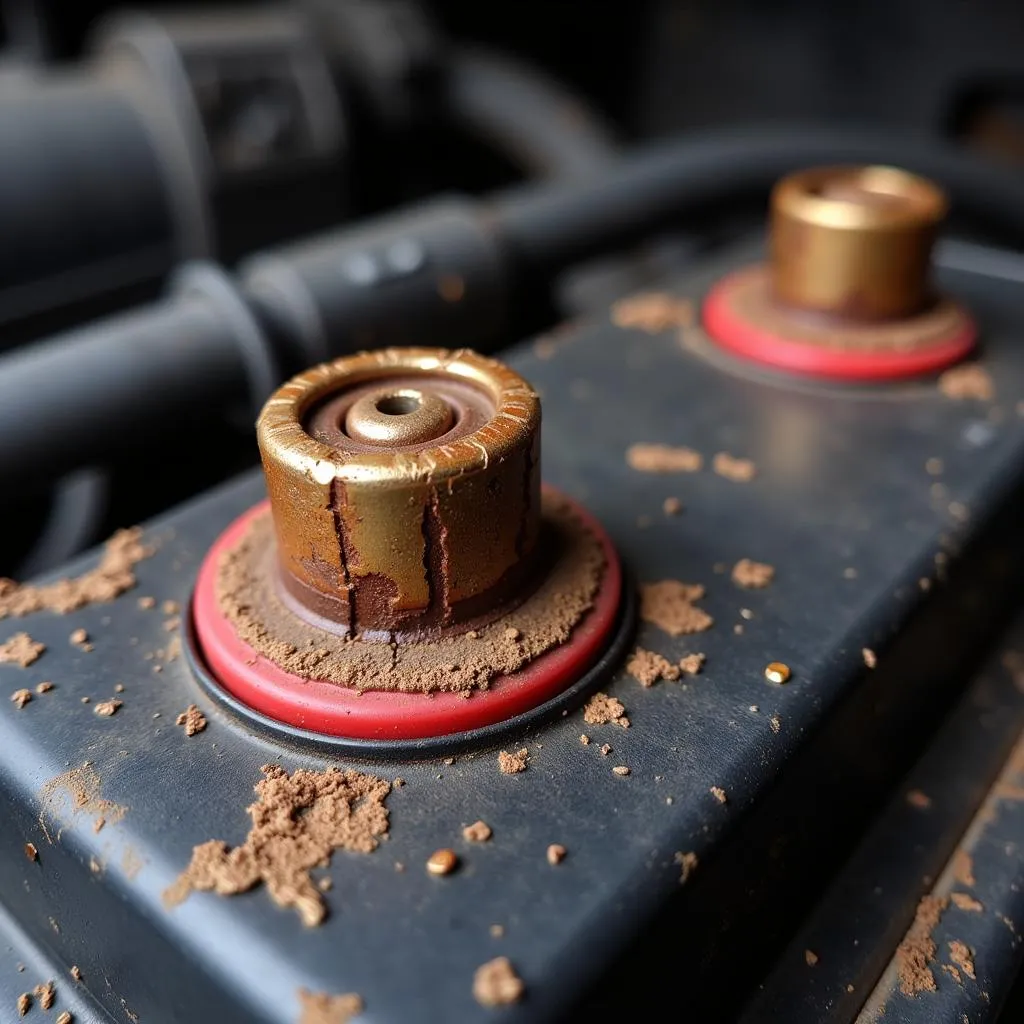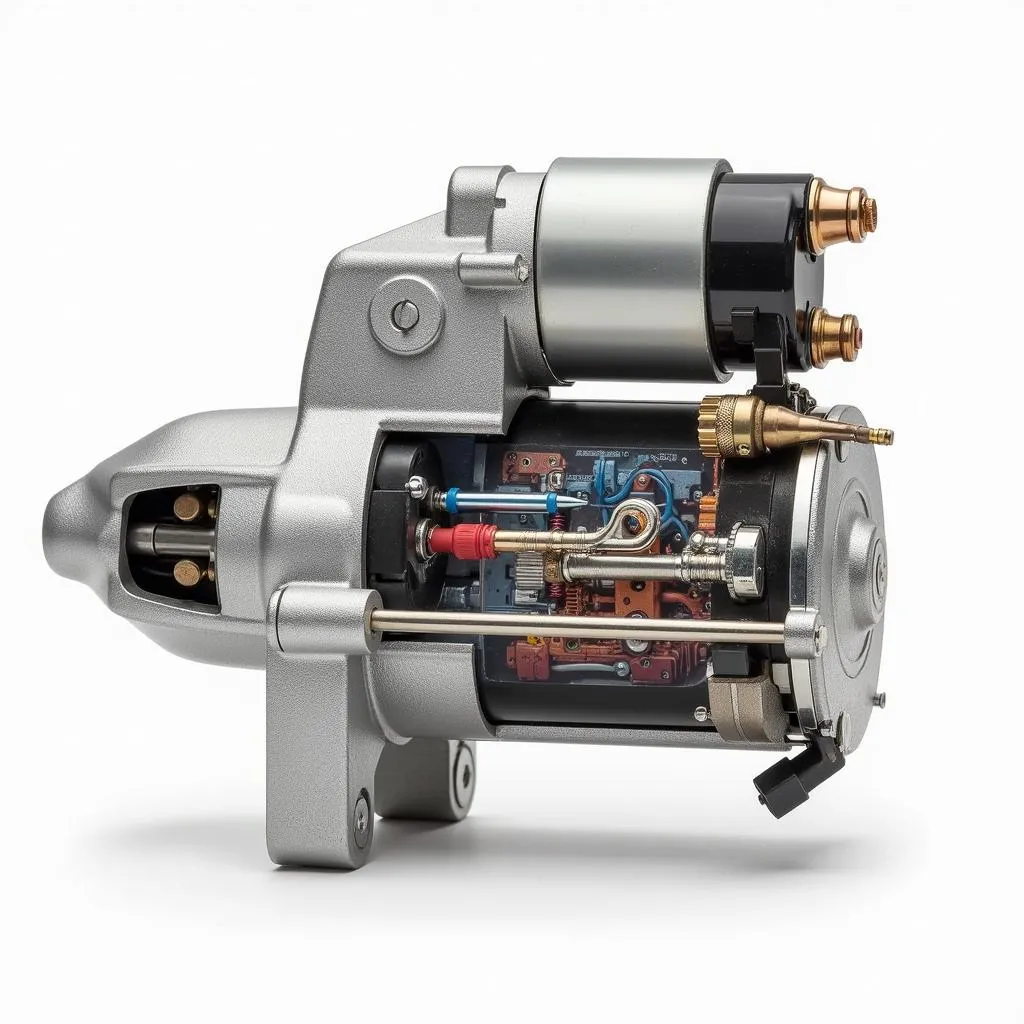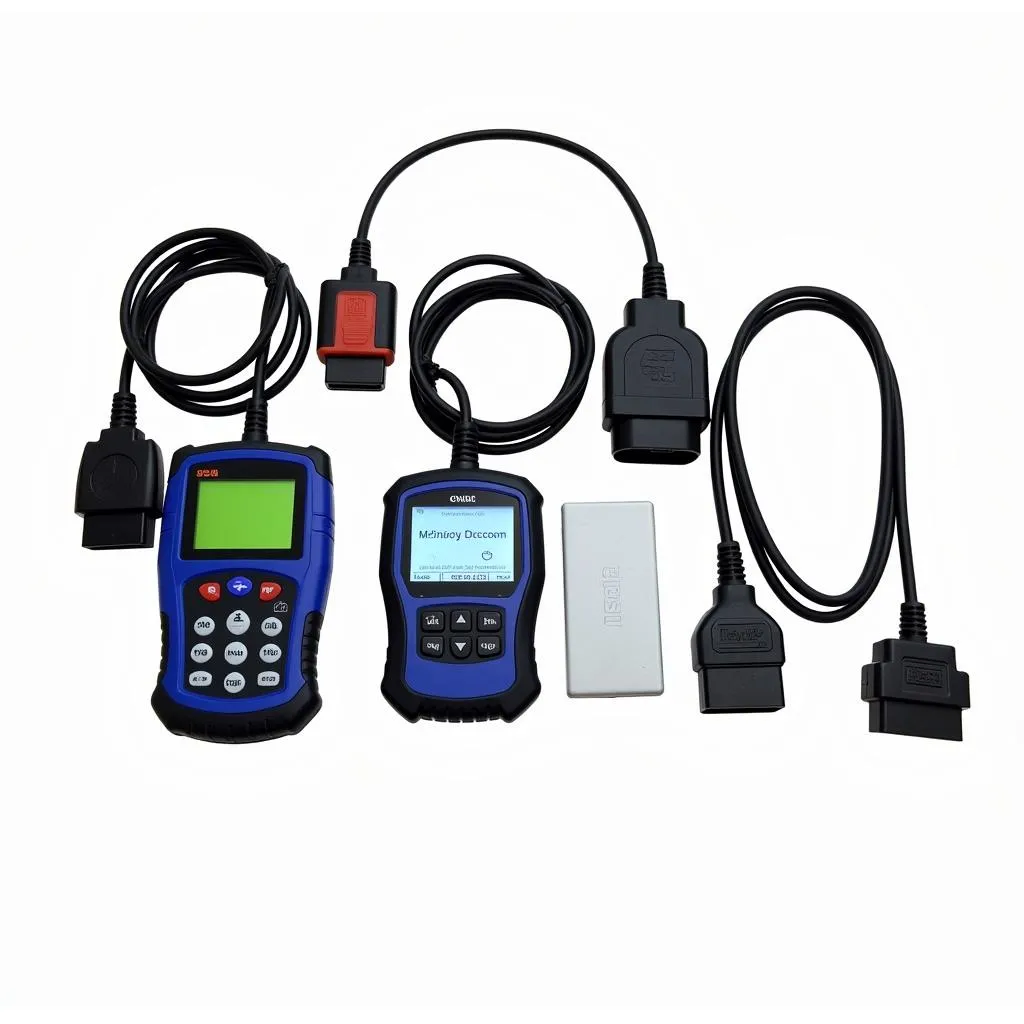You turn the key in the ignition, the dashboard lights flicker to life, but nothing happens. Sound familiar? This frustrating scenario is a common one for car owners, and it often points to a problem with the car’s starting system. While a car that won’t start with the lights on can be alarming, don’t panic! This article will walk you through the common causes and offer potential solutions to get you back on the road.
 Car Battery Terminals
Car Battery Terminals
Why Your Car Lights Work But the Engine Won’t Start
The fact that your car lights turn on indicates that your battery has some charge. However, starting a car requires a significant amount of power. Let’s delve into the most common culprits:
1. Weak or Dead Battery
A battery that seems “almost dead” can have enough power to light up your dashboard and headlights but not enough to engage the starter motor. Cold weather can further drain battery power, exacerbating the issue.
What to do:
- Jump-start your car: If the car starts after a jump, it’s a strong indication of a weak battery that needs charging or replacement.
- Test your battery: A simple battery test can confirm if it’s holding a charge.
2. Faulty Starter Motor
The starter motor is responsible for cranking the engine to initiate the combustion process. A failing starter motor might emit clicking sounds or whirring noises when you turn the key.
What to do:
- Listen for unusual sounds: Clicking or grinding noises when you turn the key often point to a starter motor issue.
- Seek professional help: Diagnosing and replacing a starter motor often requires the expertise of a mechanic.
 Car Starter Motor
Car Starter Motor
3. Ignition System Problems
The ignition system sends a spark to the spark plugs to ignite the fuel. A faulty ignition switch, a bad ignition coil, or worn-out spark plugs can prevent the engine from starting.
What to do:
- Check warning lights: An illuminated “check engine” light could indicate an ignition system problem.
- Inspect spark plugs: Worn-out spark plugs can be inspected for wear and tear.
- Consult a mechanic: Diagnosing and repairing ignition system components is best left to professionals.
4. Fuel System Issues
A lack of fuel or a problem with the fuel pump, fuel filter, or fuel injectors can also prevent your car from starting.
What to do:
- Check your fuel gauge: Ensure you have enough fuel in the tank.
- Listen for the fuel pump: When you turn the key to the “on” position (before starting), you should hear a brief humming sound from the fuel pump.
- Inspect the fuel filter: A clogged fuel filter can restrict fuel flow and prevent the engine from starting.
5. Other Electrical Problems
Loose or corroded battery connections, a faulty alternator, or other electrical issues can also lead to starting problems.
What to do:
- Check battery connections: Ensure the battery terminals are clean, tight, and free of corrosion.
- Inspect wiring and fuses: Look for any damaged wires or blown fuses in the starting circuit.
- Have your alternator tested: A failing alternator can prevent the battery from receiving a charge.
Expert Insights from John Miller, ASE Certified Master Technician
“Many car owners underestimate the importance of regular battery maintenance,” says John Miller, an ASE Certified Master Technician with over 20 years of experience. “A simple battery test during routine maintenance can save you from a major headache down the road.”
Miller also emphasizes the importance of addressing starting problems promptly. “Ignoring starting issues can lead to more significant and costly repairs in the long run,” he adds. “If you’re experiencing persistent starting problems, it’s always best to seek professional diagnosis and repair.”
Frequently Asked Questions
Q: Can a bad alternator cause my car lights to come on but not start?
A: Yes, a failing alternator might not provide enough charge to start the engine while still supplying enough power to the lights.
Q: My car wont crank lights come on, what could be wrong?
A: If your car won’t crank and the lights are dim, it’s a strong indication of a weak or dead battery. Jump-starting the car can be a temporary fix, but you’ll likely need a new battery.
Q: Could it be my OBD for laptop that’s causing the issue?
A: While an OBD scanner can help diagnose engine problems, it’s unlikely to cause your car not to start. It’s more likely related to the battery, starter, or ignition system.
 Car Diagnostic Tools
Car Diagnostic Tools
Don’t Let Starting Troubles Leave You Stranded
When your car lights come on but the engine refuses to cooperate, it can be incredibly frustrating. By understanding the common causes and following the troubleshooting steps outlined in this article, you can take the first steps towards resolving the issue.
Remember, a car starts sometimes for a reason, and ignoring the problem can lead to more significant issues down the road. If you’re unsure about how to tell if starter or alternator is bad, it’s always advisable to consult with a qualified mechanic for proper diagnosis and repair. Understanding the difference between a battery vs alternator vs starter can be very helpful when diagnosing these problems.
Need immediate assistance? Our team is ready to help 24/7. Contact us via WhatsApp: +1(641)206-8880, Email: [email protected] or visit our shop at 276 Reock St, City of Orange, NJ 07050, United States.